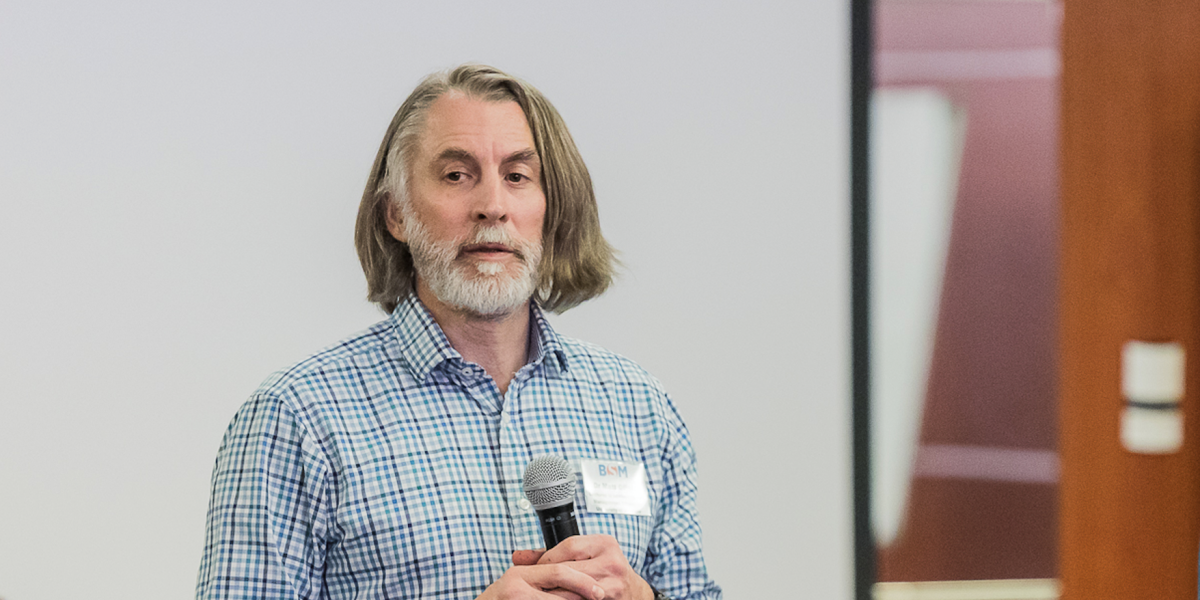
Chartered ABS responds to the DfE’s technical consultation on the International Student Levy
The Chartered ABS has submitted its response to the Department for Education’s technical consultation on the International Student Levy.
From sailor to scholar: A journey across careers

Authors

Dr Matt Offord CMBE
Associate Director Learning and Teaching, Adam Smith Business School, University of Glasgow
Few academics can say they spent 30 years in the Navy, navigating submarines and clearing underwater mines before stepping into the world of higher education.
Dr. Matt Offord’s journey is anything but conventional - starting in the depths of the ocean and leading to the halls of academia. With experience spanning leadership, consultancy, and professional development, his transition into education was driven by a desire to find structure in a new field.
The Certified Management & Business Educator (CMBE) scheme provided exactly that—a professional framework that helped him navigate his academic career with the same discipline and focus he honed in the Navy. Now, as an advocate for continuous professional development, Matt shares how the CMBE has shaped his journey, elevated his credibility, and strengthened his standing within business education.
What inspired your journey to becoming a Certified Management Business Educator (CMBE)?
I’m a second-career academic, but I took the long way around to get here. I ran away to sea at 18 and spent 30 years in the Navy as a naval officer. The first seven years were spent as a submarine officer, mostly navigating submarines. Then, I took a pretty radical career turn and became a mine clearance diver, which I did for about 20 years.
The Navy funded me to do a PhD, where I researched leadership in the Royal Navy, and I later completed a fellowship at Oxford University. That’s when I started dipping my toes into academia while still in the Navy. Eventually, I made the full transition, and that’s when things got a bit disorienting. People talk about moving between industries, but until you do it, you don’t realise how confusing it can be. In those early days, I was looking for some kind of professional framework—something to tell me what I needed to do to develop my skills and become this thing called an academic.
That’s when the CMBE came along!
Interestingly, because I had worked as a leadership development consultant, I knew how much time you spend trying to accredit what you do and prove your experience. There are a lot of conversations along the way—kissing a few frogs, if you will—some lead to work, others don’t. But the whole time, you’re trying to convince people that you know what you’re talking about.
When I saw the Certified Management & Business Educator credential, I realised it ticked two important boxes. It’s a formal professional framework backed by the Chartered Association of Business Schools, meaning it has currency and can be used externally. It also complements the internal professional development I was already doing, working hand in hand with my academic journey. For me, the CMBE was exactly what I needed—helping me anchor my experience in something structured and widely recognised. The two things worked hand in hand.
Is there always an opportunity to grow and evolve through continuous professional development?
Yes. Continuous professional development is an ongoing journey—there’s always an opportunity to learn more. My Navy experience instilled this mindset early on, as roles changed every few years and each transition required new training. Professional development became second nature, ingrained in how I approached every role. Over the years, I’ve completed all sorts of courses, from first aid and bomb disposal to learning how to drive a Land Rover!
When I transitioned into academia, I sought out the frameworks that would guide my development. For me, professional growth has no endpoint—that’s what drew me to the CMBE scheme. At a minimum, it requires 40 hours of continuous professional development, offering a variety of ways to engage and expand expertise. This can be linked to Performance Development Reviews, making professional learning a structured part of career progression. Each completed objective gets recorded as part of my Performance Development Review, and simultaneously contributes to my CMBE commitment.
Currently, I’m pursuing a doctorate in education, and I’ve found that it aligns well with the CMBE framework, reinforcing my commitment to both personal and professional growth.
What's been the most enjoyable aspect of it for you?
For me, the highlight is definitely LTSE - the Learning and Teaching Student Experience Conference. I look forward to it every year. It has such a warm, welcoming atmosphere, and connecting with peers in the academic field is always inspiring.
Beyond that, I’m intentional about the post-nominals I use. Personally, I prefer to keep it simple and avoid a long string of letters after my name. The CMBE designation, however, is one that I value and actively use. It’s the only post-nominal I include on my LinkedIn profile, as I find it particularly relevant for the people I engage with, including in my consultancy work. It’s something I’m genuinely proud of.
What has your experience been with the CMBE community in the UK and beyond?
The CMBE community continues to grow, and I frequently meet fellow CMBE peers at conferences. Beyond its professional aspects, there is a strong social element to the network, which encourages connections and meaningful discussions. One of the things I particularly appreciate about the community is its diversity of interests. Personally, I am deeply invested in outdoor learning and eco-pedagogy—an approach that integrates planetary and social justice into education. As I engage with the network, I actively seek out other CMBE members who share these interests or are working in related areas. This collaborative environment creates exciting opportunities—not just for exchanging ideas but also for forming partnerships, identifying potential collaborators, and sharing valuable insights through the broader CMBE network. To me, the CMBE is like a tribe, a family, a network.
Speaking to your peers, why should they join the CMBE?
As the Associate Director for Learning and Teaching in our school, I have this conversation with the academics I work with quite often. My role focuses on the Scholarship of Teaching and Learning and learning and teaching careers, so I talk to people who are education focused all the time. A key part of these conversations is professionalism—something that sets education-focused careers apart from research-focused ones.
One major advantage of an education career is the availability of well-established professional frameworks. In our institution, we have Recognising Excellence in Teaching, which is our internal framework, and many academics also refer to the HEA. Then, of course, we have the CMBE, a framework specifically designed for business educators. I always emphasise that these two professional pathways provide clear opportunities for career progression and can directly impact promotion decisions.
Certain levels of the Recognising Excellence in Teaching framework align with specific academic ranks, while the CMBE allows business educators to translate general education credentials into something highly relevant to their field. This makes a strong case for career progression, professional development reviews, and broader opportunities within the school.
Being a CMBE subscriber and completing the required 40 hours of professional development annually demonstrates commitment and expertise—an invaluable asset when aiming for promotions or leadership roles. If you're eyeing a leadership position, holding a CMBE credential is a powerful statement: you’re already actively engaged in business education excellence. It’s a no-brainer!
The Certified Management & Business Educator (CMBE) scheme is helping the global business school community to raise standards in business & management education. If you are interested in learning more about how the CMBE can support your professional development and amplify your role as an educator, visit here for more information.
